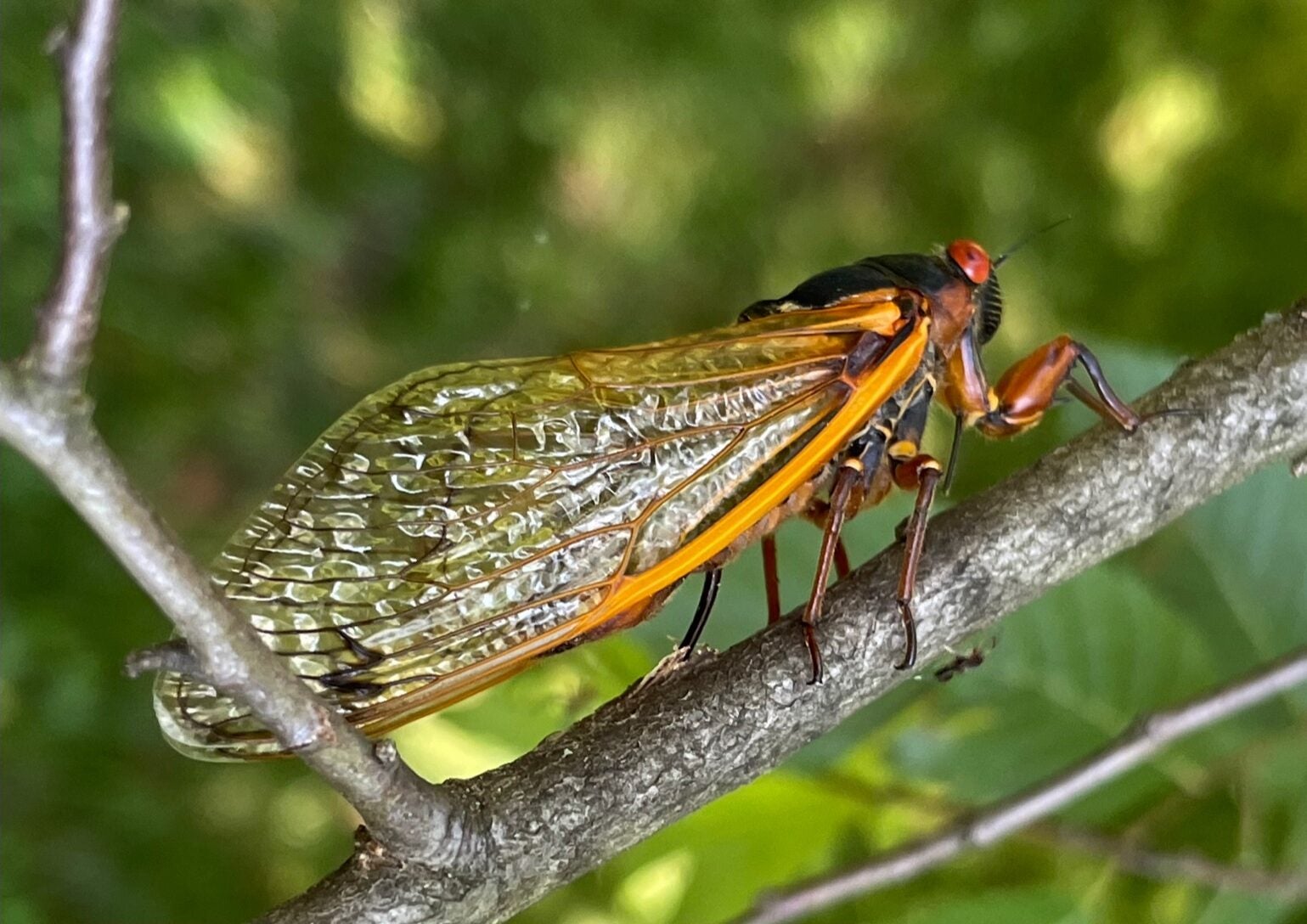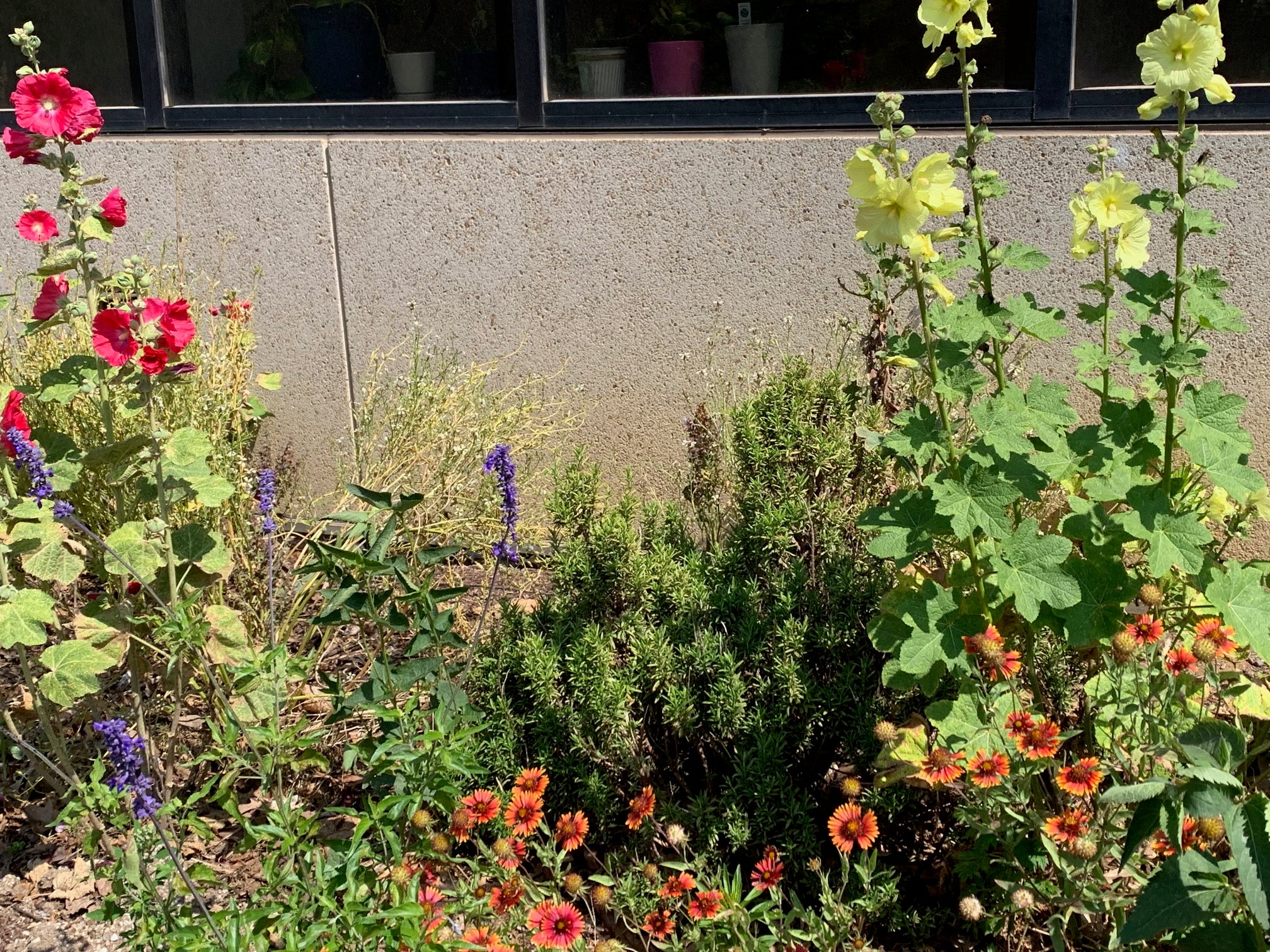2022 ECo Impact Award Recipients
From pollinators to people to past populations, 2022 ECo Impact Award recipients are expanding scholarship on environment and sustainability at Georgetown University and beyond.
2022 Recipients
A Cosmic Perspective on Environmental Crisis
Sarah Stewart Johnson, Dagomar DeGroot, Bill Diamond, Jonathon Keats
2022 Project Descriptions
“Assessing the effects of land use change on periodical cicada populations and tracing their trophic impacts on eastern forests”
- Martha Weiss, Professor, Department of Biology
- John Lill, Professor, Department of Biology, The George Washington University
- Ginger Allington, Assistant Professor, Department of Geography & Environmental Studies The George Washington University
While periodical cicadas have inhabited eastern forests of North America continuously for millenia, human residents are alerted to their presence only every 17 years when these noisy insects suddenly appear above ground en masse. Cicadas are entirely dependent on forests for all parts of their life cycle, feeding underground on tree roots as nymphs and laying eggs in tree branches as adults. Humans have dramatically altered the geography of eastern forests, resulting in local and regional extinctions of cicadas in some areas and likely increases in others. Where significant populations remain, the clock-like emergence of billions of nutritious insects almost certainly alters forest food webs, although the scale of these ecological impacts is poorly understood. In this interdisciplinary collaborative study, ecologists Martha Weiss and John Lill and geographer and landscape ecologist Ginger Allington will assess how historic and projected future patterns of land use change have affected and will continue to impact the abundance and geographic distribution of periodical cicadas in Montgomery County, MD. After fine-tuning the modeling approach at the local scale, they will broaden the study to examine impacts of land use change on cicadas throughout the entirety of the 15-state Brood X distribution.
“Earth at the Crossroads: A Cosmic Perspective on Environmental Crisis”
- Sarah Stewart Johnson, Associate Professor, Department of Biology, Associate Professor, Science, Technology and International Affairs Program (STIA)
- Dagomar DeGroot, Associate Professor, Department of History
- Bill Diamond, President and CEO of the SETI Institute
- Jonathon Keats Conceptual Artist and Experimental Philosopher
Today’s intensifying search for extraterrestrial life offers unique perspectives on the environmental challenges that may now imperil life on Earth. It explores how worlds like Earth become habitable, how they may become more habitable, and how they may lose their habitability. It considers whether and how environmental challenges can be overcome by intelligent species. Depending on its results, it may even suggest that environmental crises pose an imminent, existential threat to humanity—and thereby offer a poignant call for action.
This award will support recipients to host a conference on the environmental dimensions of the search for extraterrestrial life at Georgetown this coming October. The conference will include keynote lectures, unique events, and a roundtable that will draft a public proclamation on the threats facing life on Earth. It will reveal as never before the deep connections between the search for life beyond Earth and the study of the threats to life on Earth, and in the process, it may motivate a new wave of profoundly interdisciplinary scholarship. Recipients will publish select papers in a special edition of a leading journal and promote their conclusions in popular media.
View the Earth at the Crossroads Event >>
“Modeling Energy Democracy in a Federal and Localist System”
- Sheila R. Foster, Scott K. Ginsburg Professor of Urban Law and Policy (Law); Professor Public Policy (McCourt)
- Meryl Chertoff, Executive Director of the Georgetown Project on State and Local Government Policy and Law (SALPAL), Adjunct Professor of Law
- Elena DeNictolis, Postdoctoral Fellow, Georgetown Environmental Justice Program
The Georgetown Project on State and Local Government Law and Policy (SALPAL) will study “A Just Energy Transition.” This project will build on emerging legal and policy innovations, primarily at the state and local level, that embrace local generation of energy, local community participation in energy decisions, equitable access to energy resources like solar, and a commitment to affordable residential clean energy. Directed by Sheila R. Foster and Meryl Chertoff, this project will survey and assess for scalability and replicability:
- Localizing Energy Democracy: Cities all over the United States are leveraging autonomous legal power to promote energy efficiency policies while also counteracting energy poverty and promote equity and justice goals. As scholars have observed, this is happening in “red” and “blue” states alike. Is a participatory paradigm of energy governance a viable strategy?
- Energy Communities through Pooling: Local renewable energy communities have been piloted in the U.S. for quite some time, under the rubric of community solar. Another concept discussed by scholars is community net metering, which refers to a solar panel power plan which could be located elsewhere but whose energy production lowers the electricity bill of the community of energy consumers that participate in the initiative The question raised is whether these forms of local renewable energy communities are accessible for low-income and vulnerable communities?
- Creating and Networking Community “Micro-grids”: Microgrids increase the energy security and resiliency of communities. During an extreme weather event, the microgrid is able to disconnect from the main electric grid and continue to deliver energy to local households and businesses. Additionally, a microgrid can enable the integration in the main grid of renewable energy sources produced by a distributed system, for example a community solar project. What local programs serve as prototypes?
“Plants, Pollinators and People: Unified Research-and-Teaching Gardens at Georgetown University”
- Adriane Fugh-Berman, Professor, Department of Pharmacology and Physiology, and Department of Family Medicine, GUMC
- Martha Weiss, Professor, Department of Biology, Laboratory of Ecology, Evolution, and Behavior, GU
- Bill Hahn, Director, GeorgeSquared Advanced Biomedical Sciences Program, Professor, STIA, SFS, Biology
This project will upgrade and showcase research-teaching gardens at Georgetown to educate the community about urban ecology, biodiversity, ecological gardening, permaculture, and landscape design that pleases the eye while providing food and habitat for pollinators and birds. The project will develop, improve and support research and teaching gardens on the Main and Medical Campuses, including three plots on the Medical Campus maintained by Dr. Adriane Fugh-Berman, the Davis/Biology Department Garden outside of Regents Hall, and the Butterfly Garden on Observatory Hill maintained by Dr. Martha Weiss. The gardens will serve to provide nectar sources for the honey bee hives maintained by Dr. Bill Hahn, who directs the Georgetown Bee Campus program.
Dr. Fugh-Berman’s gardens showcase medicinal and edible plants, culinary herbs, and drought-tolerant plants, while Dr. Weiss’ butterfly garden features diverse nectar sources and larval host plants that attract butterflies, moths, and other pollinators. Funds will be used to 1) establish new plantings, 2) install signs that describe the plants and their ecological interactions, 3) arrange for students to help maintain the gardens, 4) establish educational garden tours, 5) launch a website publicizing the gardens, 6) coordinate efforts with the Bee Campus program, and 7) promote academic use of the gardens by students and professors, for classes or projects. Overall, the project’s goal is to increase research on and appreciation of biodiversity.
Resilience: How Past Populations Survived Climate Changes
- Dagomar DeGroot, Associate Professor, Department of History
- John McNeill, University Professor, Edmund A. Walsh School of Foreign Service
- Amy Hessl, Professor, Geology and Geography, Director, Office of Undergraduate Research, West Virginia University
These project leads are developing an edited book that, for the first time, surveys how populations were resilient to climate changes from the Last Glacial Maximum to the present period of human-caused warming. The collaborators aim not only to present diverse case studies of resilient populations but also to identify common “pathways” by which populations developed resilience: pathways that may aid in the development of adaptation policies for the future. The book, which will be published by Oxford University Press, will include authors from many disciplines and six continents covering climate change in a specific time and place. Support from the ECo Impact Program will allow for the authors to gather for a two-day workshop at Georgetown.
On the first day of our gathering, case studies of past resilience will be presented to a public audience, culminating with a round table with policy advisors that explores how the past might inform climate policy. On the second day, there will be a private gathering to identify common themes and challenges in the case studies. This workshop will permit the authors to publish a more coherent and compelling volume.
“Towards Critical Materials Separations: Rapid Synthesis and Characterization of Rare Earth Element-Oxoclusters via Reactions in Micro- and Nano-droplets”
- Karah Knope, Associate Professor, Department of Chemistry
- Kaveh Jorabchi, Associate Professor, Department of Chemistry
Rare earth elements (REE) are critical to clean energy technologies including wind, hybrid vehicles, and solid-state lighting. However, these elements are sourced from geopolitically sensitive regions, and current separations strategies are energy- and waste-intensive. As no suitable elements have yet been identified to replace REEs, separation of these elements from lower-grade sources and/or spent consumer electronics has become a pressing scientific challenge. Innovations in separations are critical for mitigating environmental impact and sustaining current technologies. REEs are known to form many metal atom (i.e. cluster) compounds, and such clusters hold the potential to transform current separations by making them more atom efficient, and thereby less waste- and energy-intensive. Yet in order to leverage REE-cluster chemistry in separations, the controlled synthesis and characterization of REE-clusters must be realized. The research supported by this award aims to develop innovative methodologies for the synthesis and characterization of REE-clusters. Capitalizing on the complementary expertise of the Jorabchi and Knope groups, this project will explore small droplets (100 nanometers-10 micrometers) as both synthesis and characterization vessels, affording unique opportunities for the rapid screening and identification of improved synthesis conditions conducive to enhanced REE-cluster-based separations.
Pre-2022 Impact Award Recipients
Take a look at these research grants awarded by the former Georgetown Environment Initiative









